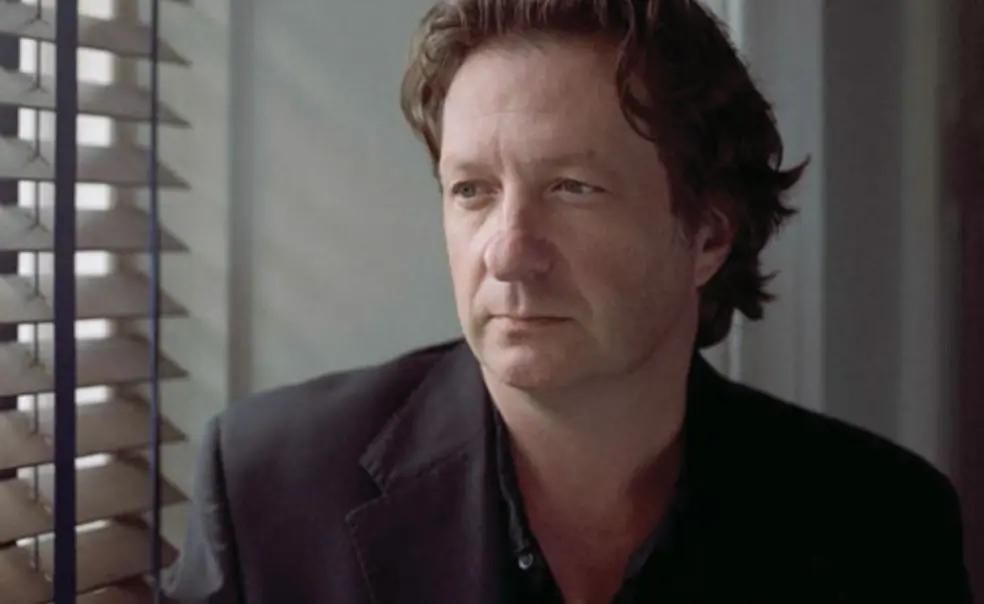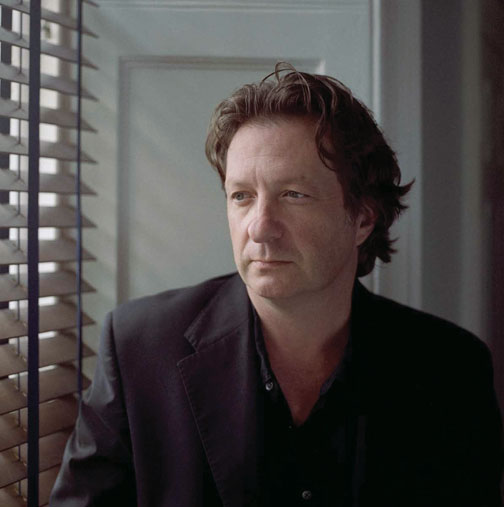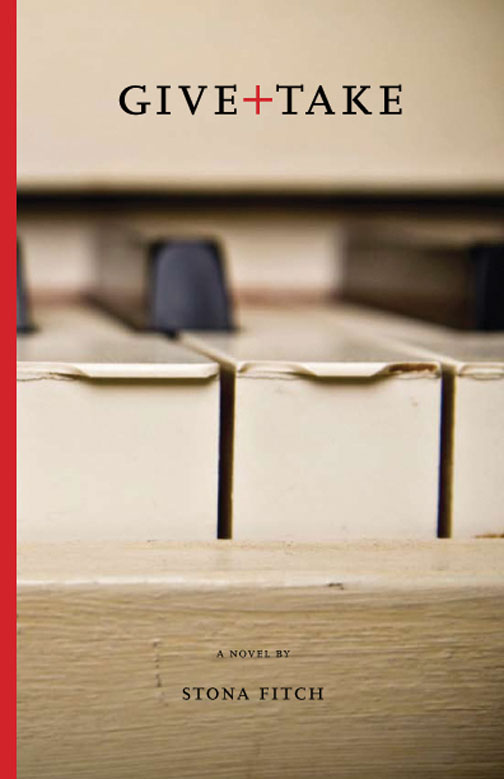A sticker on Stona Fitch ’83’s new novel reads: “100 percent off.” That’s not a typo. He’s giving his novel away, for free.
Last year he started a new type of publishing house, Concord Free Press, which published a limited quantity — 1,500 copies — of its first title, Fitch’s light, literary novel, Give+Take, about a traveling jazz pianist who steals jewels and BMWs and gives the money away to needy strangers.
The catch with this unorthodox publishing model is that the “taker” of a book is encouraged to give money to a charity and pass the book along so another reader can read and give and pass it along. Based on the Concord Free Press’s Web site, where readers are encouraged to log in their book numbers and the organizations they have given to, people are reading and giving. As of late January, readers had contributed more than $30,000, and nearly all the copies had been distributed through the Web site (concordfreepress.com) or through a network of independent booksellers. Authors won’t be paid for their manuscripts, but will get the satisfaction of “being part of an interesting publishing project that connects them to readers in a new way and that generates donations for great causes,” says Fitch.
“We’ve created a new way to think about the value of a book. It’s not how much you pay for it,” he says. “It’s about what it inspires you to do.”
Fitch, whose 2001 novel Senseless recently was made into a movie and is making its way through film festivals in Europe, got the idea for the nonprofit publishing house last year, after his editor left his job and the new editor wasn’t interested in Give+Take. Fitch, who majored in English and wrote a collection of short stories for his creative thesis, wanted his novel to find an audience and decided to do something unconventional.
He gathered other novelists, including his Princeton thesis adviser, author Russell Banks, to form a board. The publishing house is modeled on another organization he’s involved with — Gaining Ground, a volunteer-run organic produce farm in Concord, Mass., that gives all its produce to people in need. The Concord Free Press board members raise money to cover its operating expenses, read and edit manuscripts, and have found a printer who gives them a good deal. They plan on publishing two novels a year.
“We are blessedly free from the burden of profitability,” says Fitch. “Publishing books is fun,” he says, but “making money in publishing is really hard.”
The main character in Give+Take, Ross Clifton, is a modern-day Robin Hood. After his piano gigs, Clifton hooks up with wealthy women and steals their diamonds while they are sleeping off their sexual activities. He also steals BMWs off the street and exchanges them for cash on the black market. Clifton redistributes the wealth; in one scene he opens up mailboxes in a rough part of town and drops in $100 bills. Fitch draws on his experience as a traveling musician in his 20s and his disillusionment with the “overpriced commodities that litter our American landscape.”
A couple of bloggers have called the Concord Free Press “the end of publishing,” says Fitch. But “I’m not suggesting this is the future of publishing because it would mean the end of publishing,” he says. “Not all books should be free.” Fitch’s novel Printer’s Devil, a post-apocalyptic story set after a major environmental disaster, was published in February by Two Ravens Press. Authors published by the Concord Free Press can publish a traditional commercial edition later, notes Fitch. Last month Thomas Dunne Books/St. Martin’s Press bought the U.S. rights to Give+Take and will publish a hardcover edition in 2010.
Push Comes to Shove













No responses yet